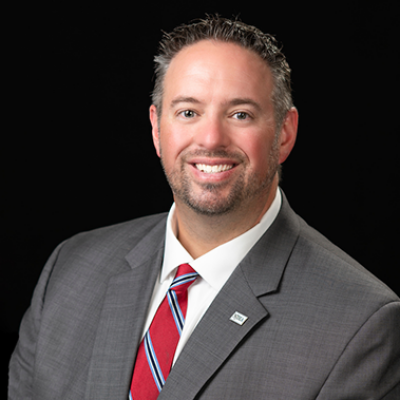Good afternoon. My name is Raymond Cantor and I am Vice President of Government Affairs for the New Jersey Business & Industry Association. NJBIA is the largest statewide business association in the nation whose members account for 1 million jobs.
Thank you for the opportunity to comment on Senate Bill No. 232. The comments I am making today are to the proposed substitute to that bill.
Unfortunately, NJBIA is opposed to this bill. First, let me say that we understand and appreciate the sponsor’s concern for overburdened communities and his desire to improve the conditions in which people live. We also recognize the complexity of the issue. If environmental justice lent itself to an easy solution it would have been resolved more than 20 years ago. And we are also appreciative of the continued effort by Senator Singleton to improve this legislation. The bill is improved from the version last session largely because the Senator listened to concerns and was willing to make changes. However, our significant concerns remain and unfortunately this committee substitute goes in the wrong direction.
This bill would greatly impact major manufacturers in this state, both existing and those who may have been willing to locate here. This bill closes the door to them. It would effectively ban the creation of any new or expanded recycling facility, just when the Legislature is seeking to expand recycling efforts. The recently enacted food waste bill (A-2371) will be rendered useless, as no new facility will be able to be sited within the 20-mile limit established in that law.
But this bill would also have many additional consequences, including banning any expansion efforts at major universities and colleges such as Rutgers, Rowan, and Stockton. New labs will not be built, including at Rutgers where their scientists made significant discoveries in coronavirus testing. The Higher Education bond act may go unspent. Hospitals, too, will be impacted and many existing medical centers will not be able to expand to meet community needs. Other facilities such as the Hard Rock Casino in Atlantic City will also be banned from expanding and will face new restrictions when their air permit is renewed. I am not sure if these and other impacts were contemplated when this bill was drafted, but they are real.
I want to start off with some good news. While challenges obviously still remain, and new ones arise too often, New Jersey has made significant progress in both its air quality and hazardous site cleanups. New Jersey is now in attainment with federal standards for PM 2.5 (small particulate matter), a prime cause of localized air pollution and health effects. Ozone levels have been steadily declining and New Jersey would be in attainment for that pollutant as well but for the numerical standard being recently lowered by the federal government. That New Jersey remains in non-attainment is largely due to out-of-state pollution sources that travel to our state.
The State has also spent $30 million over the last decade to retrofit diesel buses to improve local air quality. Also, since the enactment of the Site Remediation Reform Act in 2009, over 10,000 contaminated sites have been cleaned up, many of which were in less affluent urban areas.
These efforts have shown on-the-ground benefits as hospitalizations for asthma have been declining significantly for the last decade. That is great news that shows the effectiveness of New Jersey’s air pollution program. We are hopeful that as more cars are electrified, incentivized by legislation passed this session, that the air will become even cleaner. Still, we realize that more needs to be done and certain areas still shoulder an unacceptable burden.
Also, before I get into the specific concerns we have with the substitute, let me also say what NJBIA would support. Given the challenges faced by certain communities, we believe that greater communications with residents is necessary and we are supportive of provisions that require open public hearings and other communication efforts. This is especially so given the impact larger industrial facilities may have, or be perceived to have, on a community. We would also be supportive of provisions that allow projects that meet all standards to be approved, but requiring mitigation measures that would improve the lives of the communities where the facility is located.
However, rather than “redline” an area, or in the case of this bill, half the state, for additional scrutiny and a higher standard of permit approval, a move that will impact manufacturers in the State, NJBIA favors a proactive approach to improve the environmental conditions in overburdened communities. This approach can have far more meaningful impacts to resident’s lives then attempting to keep businesses out.
The NJDEP, in fact, has established just such a program and it has been successful. It is called the “Community Collaborative Initiative” (CCI) and it has operated largely without legislative involvement or codification. The premise of the program is to dedicate DEP resources, both personnel and monetary, to solve on-the-ground environmental issues that are impacting communities. Communities are identified and resources are then deployed.
Examples of CCI’s success include the elimination of sewer street flooding in Camden, the restoration of the Harrison landfill in Camden, the daylighting of a stream in Trenton, and the cleanup of a brownfield in Perth Amboy near a school which was turned into a waterfront park. The CCI program has been so successful that DEP has recently expanded the communities in which it operates.
We believe CCI is a better approach and it can use more resources.
On the substitute, our concerns are with the definition of an “overburdened community,” the requirement to look at cumulative impacts, the inclusion of existing air permits when they are renewed, and the denial of a permit based on a comparative risk standard.
We recognize that neighborhoods with high levels of poverty suffer greater challenges due a number of reasons, including less access to healthy foods and medical care. The definition in the substitute does recognize poverty as a factor, but it does not rely on any objective environmental or health impacts. It also includes other demographic criteria that we do not believe adequately reflect the issues at hand. The definition of overburdened communities in the bill is now so broad that it encompasses 4.5 million residents and 300 municipalities. The exception has swallowed the whole. If we need to address overburdened community issues the definition should be far more limited.
The requirement to look at “cumulative environmental or public health stressors” would force a permit applicant to look into a community for an unlimited number of factors beyond its control and try to quantify how they impact a community. This is a near impossible task and an especially onerous one to place of a business trying to bring jobs to a community. DEP should be made to provide and limit the data bases with which an applicant should look.
The substitute adds a new requirement that facilities with existing air permits go through a new environmental justice analysis when their permit comes up for renewal. The DEP would be allowed to require additional requirements be placed on the permit, presumably to address community impacts that exist irrespective of the permit. What these conditions are, how they are chosen, or how much they will cost are not defined in the bill. This is an unfair requirement. These facilities already exist, are meeting all environmental and other standards, and are captive to their location. To impose new burdens on them for conditions beyond their control will only serve to drive more manufacturers out of the state, at a time when more good paying jobs are needed.
We object to permits being denied by using an undefined standard that attempts to compare community burdens to community burdens in other areas of the State. The test itself is too vague to be applied in a regulatory permit context and the result would not necessarily mean that unacceptable harm would result from the facility. This standard does not observe what the facility itself is doing, and not even to cumulative impacts in a community, itself an unfair standard, but rather looks to compare one community’s presumed burden to another’s and to deny a permit if there is a difference.
In blunt terms, it requires the DEP to look at the community burdens in a Paterson, as an example, and if they are greater than in areas such as Hunterdon County, the permit is required to be denied. This test effectively will prevent any listed facility, including universities or hospitals, from locating in half the state or expanding there. Much of the rest of the state is already banned from development by the Highlands and Pinelands Acts. This bill flies in the face of smart growth principles and efforts to remediate and revive urban and older suburban areas, including old industrial sites.
The standard applied in the context of environmental permitting for the last 50 years is to minimize pollution to the extent technologically possible and to set objective health standards to which permittees must comply. It has worked. The air program does look at cumulative impacts of an air emission both in a localized context and in areas where the State is in violation of a criteria pollutant. This legislation would take us in a new, unprecedented direction and it will only serve to stop certain businesses from locating in certain areas, which is now half the state.
Finally, I want to address a practical issue. The bill requires the DEP to do a cumulative impact analysis and then a comparative burden analysis. While the words sound scientific and rational, as a practical matter the science does not exist to do such an analysis and the DEP does not have the staff or expertise to even try. I make this claim not as a criticism of the DEP, but as someone who has spent a career in environmental policy, spending over a decade in DEP, and having worked on environmental justice issues for the last 30 years. There is a reason why no other state or the federal EPA has adopted these standards. These standards merely establish a ban on many essential facilities in over the half the state, not a process or a productive means to improve environmental permitting.
In conclusion, we understand the complexity of this issue and the problems trying to be solved. We believe a more proactive approach to solving problems is preferable to “redlining” legislation. We also believe that the imposition of cumulative burden tests and comparative impact standards will only serve to prevent manufacturing and other jobs from coming into certain areas.
Thank you for your consideration and we welcome an opportunity to discuss this further.





